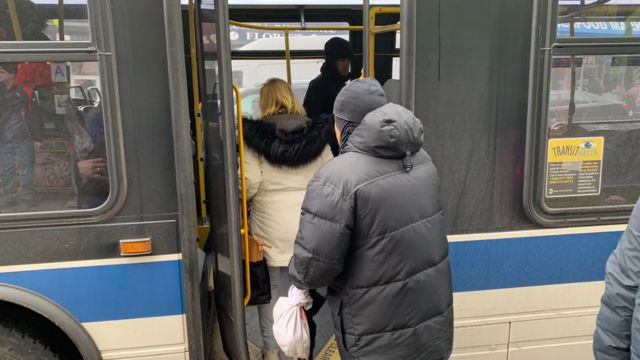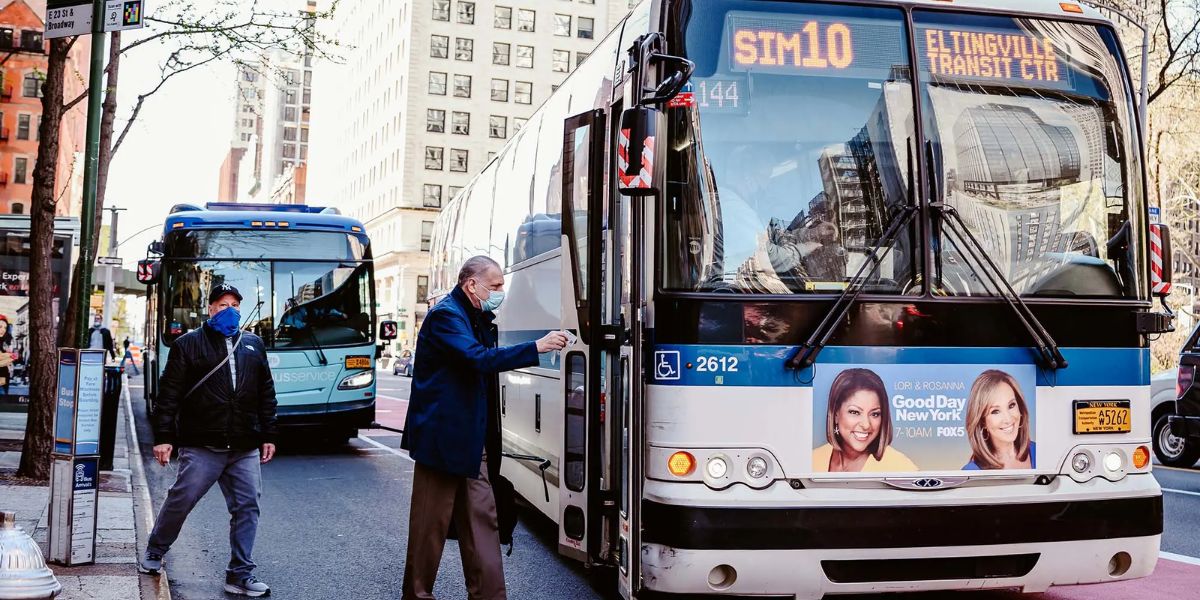Study Uncovers Widespread Fare Evasion Among MTA Bus Riders: Nearly Half Not Paying
DEBARYLIFE – This year, the MTA anticipates losing over $700 million due to fare evasion.
According to MTA Chairman Janno Lieber, “The MTA recognizes fare evasion as an existential challenge.”
According to Lieber, between 30 and 50 percent of bus users do not pay for their rides. He thinks this is a holdover from the epidemic when passengers boarded through the back door rather than the front one, as the driver had intended.
According to Lieber, “We recognize that this is a complicated problem without a one-size-fits-all solution; there are individuals who would not have paid but are motivated to do so, as well as others who may find the cost of the fares prohibitive.”
According to a recent survey, there is a worrying trend in the New York City bus system operated by the Metropolitan Transportation Authority (MTA): about 50% of riders are not paying their fares.

This information has sparked discussions about possible ways to deal with fare evasion and brought up important considerations regarding the system’s financial viability.
The study estimates that 48% of MTA bus passengers do not pay their fares. This startling amount signifies a large financial loss for the transportation system, which mostly depends on fare collection to finance operations and infrastructure upkeep.
SEE MORE – MTA Bus Struck By Car In Mott Haven Hit-And-Run Incident, What Police Says
There are several different factors contributing to this widespread fare evasion. Some riders claim they are unable to pay the fare because to financial difficulty.
Others cite their refusal to pay as an explanation for their displeasure with the MTA’s level of service, citing problems including frequent delays, crammed trains, and inconsistent schedules.
The problem has also been exacerbated by how simple it is to evade paying money on MTA buses. In contrast to subway stations that have entry gates and turnstiles, bus boarding usually entails passing through several doors, which makes it simpler for passengers to avoid paying the fee and remain undetected.
The MTA will suffer more than just financial losses as a result of this widespread fare evasion. In addition, it unfairly penalizes customers who do pay their fares and compromises the integrity of the transportation system. Additionally, it poses a problem for initiatives meant to raise the general effectiveness and dependability of New York City’s public transit system.
The MTA has promised to make efforts to address fare evasion on its buses in response to these findings. Proposed possible remedies are enhanced fare enforcement methods like more transit police officer patrols and the placement of fare inspectors on buses.
To more successfully discourage ticket evasion, the agency is also looking into technological advancements like the installation of fare gates on buses and the use of contactless payment systems.
SEE MORE – Ramapo Reports List Violations By Monsey Bus Drivers in Child-Striking Incidents
But combating fare evasion will call for a diversified strategy that goes beyond simple enforcement actions.
To create long-term solutions that support justice, equity, and sustainability within the MTA bus system, it will be essential to address the underlying reasons of fare evasion, such as economic inequality and discontent with service quality.
The MTA is faced with the difficult task of finding a balance between guaranteeing sufficient revenue generation and preserving accessibility and affordability for all customers as talks about fare evasion persist and measures to stop it escalating.
The results of these initiatives will have a significant impact on how public transit operates in New York City going forward.
He made no mention of any concrete strategy to reduce fare evasion.











